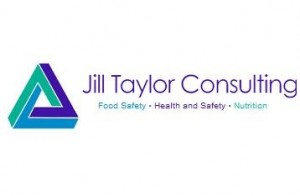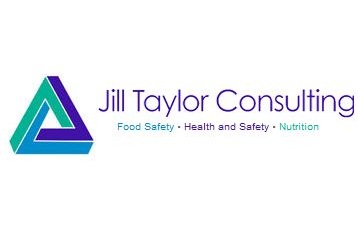With the general mayhem and madness in the run up to Christmas I nearly forgot that I promised part two of how to stay food safe over the festive period when or fridges, freezers & cupboards are brimming full of seasonal and festive food. Read on & if it helps even just one person to keep their friends and family safe from upset tums over the holidays, then I’ll be happy (By Jill Taylor).
 |
| [relatedPosts title=”Related Posts”] |
|
|
Myth bust – The sniff test!
A bad smell or taste from food can be an indicator that the food has “gone off” or started to spoil, however changes in taste, texture & smell of food are caused by different bacteria than those that will make you ill – and they don’t always exist together. What this means is that just because there is no evidence of food starting to spoil (food spoilage bacteria) this is no guarantee that the food will still be safe from the other, more dangerous, type of bacteria which cause food poisoning because, just to make life difficult, you can’t see, smell or taste these bacteria!
So have a care, if its high risk food & its past its “Use by” date – don’t risk it, its not worth the consequences!
Careful cooking
To work out the cooking time of your turkey, check the packaging or retailers instructions, if there aren’t any this general guide should make sure you are safe.
In a preheated oven to 180°C (350°F, Gas Mark 4):
- Allow 45 minutes per kg plus 20 minutes for a turkey under 4.5kg
- Allow 40 minutes per kg for a turkey that’s between 4.5kg & 6.5kg
- Allow 35 minutes per kg for a turkey of more than 6.5 kg
These times are based on cooking an unstuffed turkey, if you cook your bird with stuffing inside it will take considerably longer to cook as the heat cannot circulate – I would always recommend cooking stuffing separate to ensure a safer, tastier bird.
The simplest way to check if the bird is cooked right through is to pierce the thickest part of the meat and if the juices run clear with not hint of pinkness or blood then your birds done – alternatively you can temperature check the thickest part of the meat – the core temperature should reach a minimum of 70°C for 2 minutes (or if you’re busy 75°C for 30 seconds!).
Your goose may be cooked!
Other birds, such as goose and duck, require different cooking times and temperatures. The oven should always be hotter for duck & goose so that the layer of fat under the skin melts away.
- Cook goose in a preheated oven at 200°C (400°F/Gas Mark 7) for 35 minutes per kg
- Cook duck in a preheated oven at 200°C (400°F/Gas Mark 7) for 45 minutes per kg
- Cook chicken in a preheated oven at 180°C (350°F/Gas Mark 4) for 45 minutes per kg plus 20 minutes
Using leftovers
Leftover turkey can be kept in the fridge for about 2 days, provided it has been put in the fridge as soon as cool. Large amounts of leftover food should be divided into smaller portion sizes before storing in the fridge or freezer.
Refrigerated leftover turkey can be served cold, hot or used to make a new dish. If serving cold only take out as much as you need, if serving hot, reheat until steaming hot right through – & only ever reheat once!
To use leftover frozen turkey, defrost thoroughly in the fridge overnight and reheat till steaming hot right through.
Vegetables – scrub up!
Contrary to popular belief it’s not just the turkey, or the protein foods like cream, cheese, meat & eggs etc that can cause problems at Christmas. Care needs to be taken with fruit and vegetables too – there have been several outbreaks of E. coli food poisoning this year that have been caused by unwashed vegetables, or the dirt from vegetables coming into contact with other foods.
Think about it, to grow good veggies, especially organic ones, we throw manure onto them, which is fine & dandy for great carrots or brussels sprouts – but some animals carry nasty bacteria in their digestive tract & if this is chucked all over your growing veggies you want to be pretty sure that it’s washed off before you eat them!
Most of the bacteria will be in the soil or dirt on the outside of the fruit or vegetables so good washing and thorough peeling will help make sure they are safe – & dispose of the dirty peelings so they can’t contaminate other foods.
Top tips
- Always wash your hands thouroughly with warm soap and water & dry, before and after handling raw food, including meat and vegetables.
- Don’t wash your turkey, or any other poultry, its not necessary & you could splash bacteria all over the sink, worktops, dishes etc
- Check your date labels “Use by” is an instruction – stick to it, “Best before” is more a guidance for good quality so you don’t have to be so rigid
- Check labels on pre-packed fruit and vegetables, unless it states “ready to eat” or “ready washed” then you need to wash, peel or cook the food before eating.
Happy Christmas, stay safe and a healthy & prosperous 2012 to everyone.
About Jill Taylor
Jill runs her own training and advisory consultancy and offers guidance and advice on which food safety practices and procedures are appropriate for your business and how to implement the relevant management systems. J T Consulting also specialise in the provision of training leading to examination and qualification in all relevant Food Safety Awards and HACCP, at all levels and for all sectors of the food industry. Support for clients training and certification is also offered in the related areas of Health & Safety, Risk Assessment and Healthier Foods and Special Diets.
.





